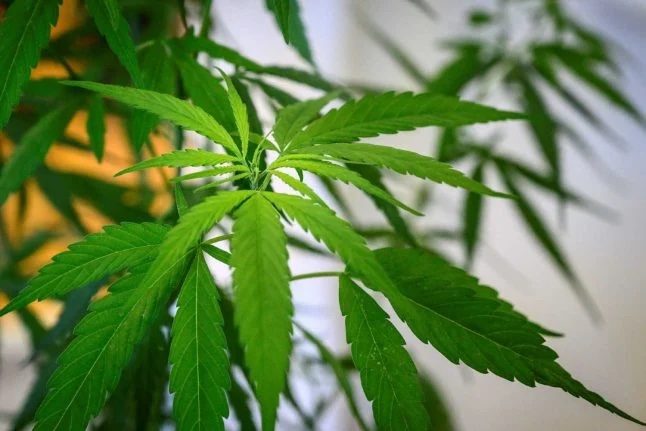Many nations around the world have decriminalised the recreational use of marijuana, while in others it is still an offence. In Switzerland, the grass is not necessarily greener, as the country lags behind many others in this respect.
In fact, there is a certain paradox when it comes to drug legislation in Switzerland: on one hand, the country has a liberal, publicly funded heroin distribution program. But on the other, the consumption of cannabis remains illegal.
Whether referred to as cannabis, marijuana or hemp, Switzerland’s Narcotics Act qualifies it as “a psychoactive substance”, with tetrahydrocannabinol (THC) being its most intoxicating ingredient.
The law specifies that “only THC is controlled under the Narcotics Act. Other active substances like cannabidiol (CBD) are not subject to the Narcotics Act as they do not have comparable psychoactive effects”.
Let’s weed out what is allowed under the law – and what isn’t.
Legality is determined by the THC
THC of at least 1 percent is generally prohibited in Switzerland and use of products with this (or higher) content may be punishable by a 100-franc fine.
Of course, if someone is determined to smoke it, 100 francs may not be much a deterrent — but that’s a subject for another article.
“By contrast, possession of up to 10g of cannabis for personal use is not considered a criminal offence”, the law states, as long as it is not used by or sold to minors.
And, as with nearly everything else in decentralised Switzerland, “there are still considerable differences between cantons regarding implementation of the fixed penalty procedure”.
However, “cannabis flowers intended for smoking with a high proportion of cannabidiol (CBD) and less than 1 percent THC can be sold and purchased legally”, according to the legislation.
That’s because, unlike the THC, cannabidiol “does not have a psychoactive effect”.
In other words, low-content THC and CBD will not give the “high” that recreational users seek.
Is there any change on the horizon?
In June 2020, the National Council approved a plan to start cannabis trials for recreational use.
The experiments are to be carried out in Switzerland’s larger cities. Basel, Bern, Biel, Geneva and Zurich have all expressed interest in conducting the trials.
The study seeks to find out how the market for cannabis works – and how to combat the black market. The social effects of legalisation will also be examined.
At this point, no decisions have been made. However, Swiss authorities have set certain conditions in case recreational use is approved.
The National Council said if cannabis were to be legalised, it must be locally grown in Switzerland – and it must be organic.
Health Minister Alain Berset noted that legalisation should benefit Swiss farmers even though “very few producers have experience in this area”.
READ MORE: Switzerland backs recreational cannabis trials – with one condition
Can you grow your own cannabis?
In truth, a number of people cultivate marijuana plants on their balconies or in their (secluded) gardens for their own personal use.
As it turns out, the law allows it, as long as it is a variety of the plant that does not have a narcotic effect — that is, the THC content must be less than 1 percent.
By the same token, cannabis-based products with THC content of below 1 percent can be brought into Switzerland from abroad.
However, the import rules differ depending on the type of product it is — flowers, seeds, extracts, oils, or other goods.
What about medicinal marijuana?
Cannabis has well-known pain relieving properties, and since October 2019, when the Narcotics Act was amended, Swiss doctors prescribe cannabis-based medications to patients to relieve the pain of cancer, multiple sclerosis, and other serious illnesses.
Until then, only one cannabis drug was authorised for use in Switzerland, and only under strict conditions.
How much cannabis is consumed in Switzerland each year?
Precise numbers are hard to come by, but according to an article in Le Temps, which based its information on a medical study, about 100 tonnes are consumed in the country annually.
Cannabis remains the largest market in terms of volume: it represents 85 percent of drugs consumed in Switzerland, netting between 340, 000 and 500,000 francs per year.
READ MORE: Drugs and alcohol: Just how much do the Swiss consume?



 Please whitelist us to continue reading.
Please whitelist us to continue reading.
Member comments